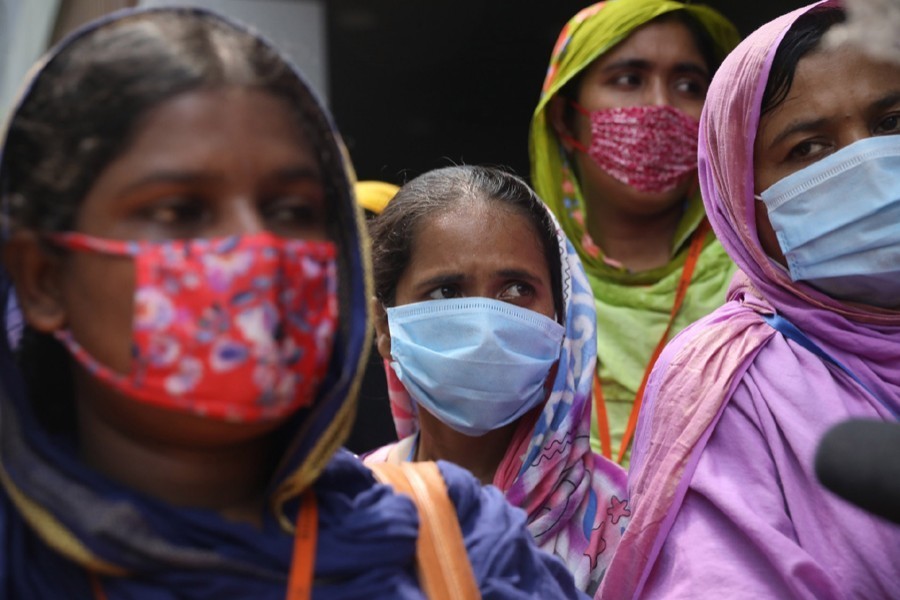
Published :
Updated :

Paeans to the supposed indomitable spirit of Bangladesh women have traditionally been in use during the times of their economic hardship. These compliments are meant to uphold the enterprising rural women's resilience in their struggles for survival. Although the plaudits are representative of rejuvenation, drawing government and non-government entities' endorsement, on the final count these women are found at the bottom of entrepreneurship. At times these compliments do not match reality, resulting in the suffering women's consideration of these gestures of encouragement as mere sop. Words do not help, but concrete and meaningful steps do.
These village-based women belong to the group of the 'cottage' part of the cottage, micro, small and medium enterprises (CMSMEs). Throughout the vast rural areas of the country, small cottage enterprises have been in operation for ages. They start with a petty sum of capital, expecting equally humble profits. These nearly marginalised women continue to improve their lot by pouring backbreaking labour into their home-based enterprises. Barring a few exceptions, they get little monetary or physical help from their husbands. But the latter expect them to be at their sides whenever their need is felt acutely, especially in the field. To speak in plain terms, this is how the entrepreneurial and 'resilient' women are treated in Bangladesh society. Normally, the spirited and energetic women's vow to fight their way through adversities is seen after the natural disasters like cyclones and floods. The ongoing post-Covid-19 slump has reenacted a similar scene. Due to the worldwide pandemic, and a protracted one, its path of destruction is slow but enervating.
The alarming aspect of the scourge is it has thrown the country's fast emerging rural entrepreneurship in disarray. Alongside them, many nearly nondescript cottage industry-based income-generating initiatives are losing their ways in wilderness. Due to their inability to form new capital bases, many have started closing down their improvised workshops in the post-lockdown penury. In fact, a stoppage to product supply to urban sales points, and the traders' home confinement due to the pandemic-induced ban on road-rail movement dealt a serious blow to the cottage industries. The SME outlets are generally city-based. Many of them are run by educated women having sound knowledge about the government-introduced stimulus packages meant for female entrepreneurs. But their rural entrpreneurs have little idea about the loans extended by the government.
A most distressing aspect of the pandemic's impact on this alternative commerce is the anomaly detected in the efforts to help out the severely hit cottage industries. Ignorance of most of the loan aspirants about the online-based communication led to the cottage industry women's deprivation of the stimulus opportunities. Due to acute financial crisis, lots of them have been compelled to wind up their businesses. Many had to resort to job cuts. The women-run wobbling cottage enterprises had just started picking up in the last couple of decades. The pandemic shutdown put an unexpected block on their efforts to attain financial self-sufficiency leading to empowerment. Against this backdrop, watching women paddle ferry-boats, seated on the drivers' seats in auto-rickshaws in an upazilla town, or selling Covid-19 masks, hand sanitisers etc or pulling a rickshaw in the guise of a man is really distressing. That women have to take up such rather unusual jobs due their inability to resume their lost entrepreneurial ventures is a sad commentary on the country's post-corona recovery.


 For all latest news, follow The Financial Express Google News channel.
For all latest news, follow The Financial Express Google News channel.